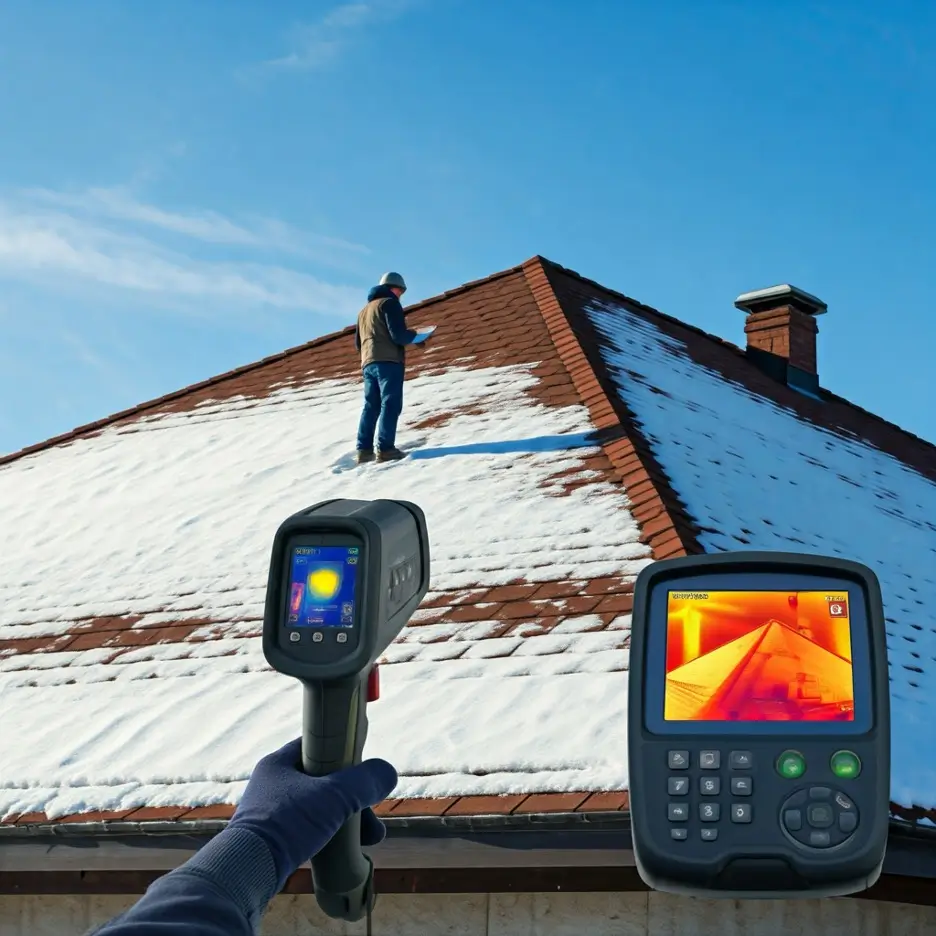Maintaining your roofing system is crucial for improving energy efficiency, especially during the colder months. Proper roof maintenance can help reduce energy costs by ensuring your home is properly insulated and ventilated.
Regular inspections, repair of any damage, and addressing issues like poor insulation or improper ventilation can significantly improve your home's thermal performance. Investing in roof maintenance now can lead to long-term energy savings and a more comfortable living environment.
The choice of roofing materials can greatly impact your home's energy efficiency. Different materials have varying insulative properties and reflective capabilities, which can affect heating and cooling needs.
When selecting roofing materials, it's important to consider your local climate and weather patterns. For example, in hot climates, materials with high solar reflectance can help reduce cooling costs, while in colder regions, good thermal insulation is essential for retaining heat.
Proper roof ventilation is crucial for maintaining a comfortable indoor environment and preventing moisture-related issues. Adequate ventilation allows warm air to escape in the summer and prevents heat buildup in the attic during the winter.
By ensuring your roof has the right balance of intake and exhaust vents, you can improve air circulation and reduce the strain on your HVAC system. This can lead to energy savings and a more comfortable living space throughout the year.
The design of your roof can also impact the energy efficiency of your home. Factors like roof pitch, orientation, and the presence of architectural features like dormers or skylights can influence the home's thermal performance.
By considering these design elements and incorporating energy-efficient strategies, such as optimizing roof orientation for solar gain or incorporating insulated panels, you can maximize the energy efficiency of your home and reduce your carbon footprint.

